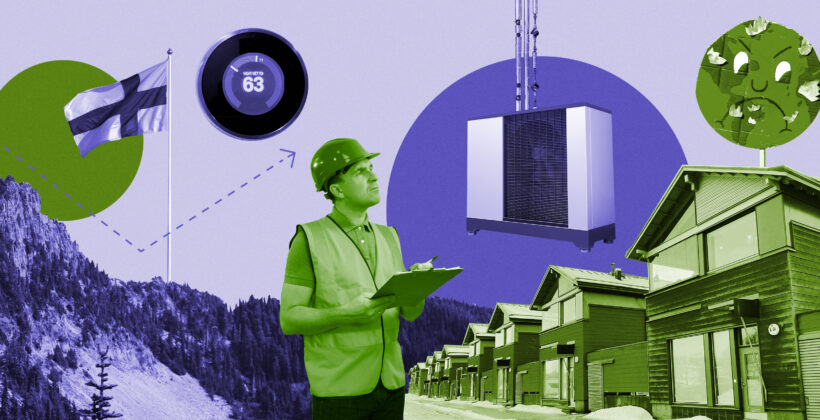
Story of change
The jump to pumps: how Finland found an answer to heating homesHow to heat homes and workplaces without relying on fossil fuels is one of the more difficult challenges for moving rapidly to zero carbon economies. Within...
It is time for better storytelling about the possibilities of change at the speed the climate crisis demands. Every nation needs to learn from each other to accelerate action on the climate emergency, and working together makes it much easier. The Rapid Transition Alliance has teamed up with leading research body, Nesta, to find examples showing how quickly change can happen to cut climate-damaging pollution.
Partnership and collaboration is vital across most sectors today, but it is not always straightforward. So it is particularly noticeable when a relationship works well. All the more surprising when one partner is a small, fleet of foot, internationally-focused think tank called the Rapid Transition Alliance, and the other is the significantly larger, independent UK innovation agency that Nesta is today.
Access the full series of case studies here
The two came together over the need for better storytelling about the possibilities of change, where great ideas and innovation confront day-to-day pragmatism and the impatient demands of climate change. The Rapid Transition Alliance shares stories of evidence-based hope about the climate emergency as a way to foster belief and creativity about how to achieve the carbon-reduction aims of the Paris Agreement. Nesta meanwhile is refocusing its strategy to signal the importance of scaling up to achieve the impact needed to tackle society’s biggest challenges. Examining what works and how to scale up is central to both organisations’ objectives.
The resulting collection of stories are being launched this week as a series to illustrate different ways in which change on the ground is possible, by showing how it has already happened around the world. National level strategic policy shifts with huge budgets lead the way in the story of the South Korean Green New Deal, but at the other end of the spectrum, peer-to-peer learning about heat pumps enabled incremental change at the household level to develop into systemic change in Finland. We also see how a blend of continuously improving government policy and innovation in turn acted like a relay race to develop lower energy lightbulbs with higher efficiency. And finally, a sea change decision by the Dutch government in response to changing times and strong public outrage shows how it is completely possible to move away from an extreme dependency on fossil fuels in a modern Western democracy.
As the UK prepares for COP26 in the autumn, governments continue to cast around for ways to bridge the gap between the aims of the Paris Agreement – keeping global temperature rise below 1.5 degrees C – and the short term demands of democratic politics and economic growth as the solution to the post-pandemic world. Collaboration at all levels and learning from the success of others is perhaps the way forward.
Nicky is a social entrepreneur who is interested in ways of working that integrate ethics, social justice and sustainability with innovative economic models. She coordinates projects and writes for the Alliance. Nicky is a co-founder of the Beaver Trust, Learning from the Land, Woolly Shepherd and the Boston Tea Party. She is a poet, short story writer, photographer and artist, with a particular love of collaboration.
